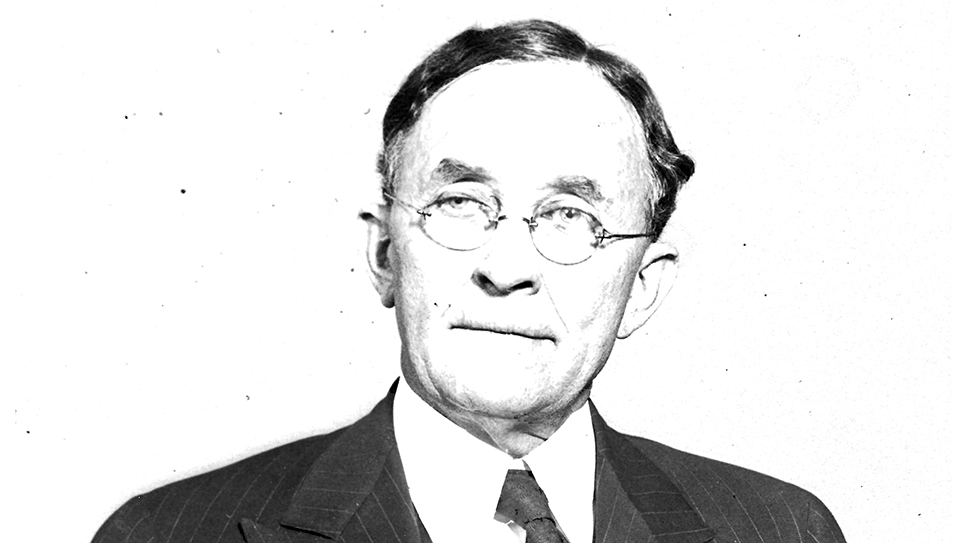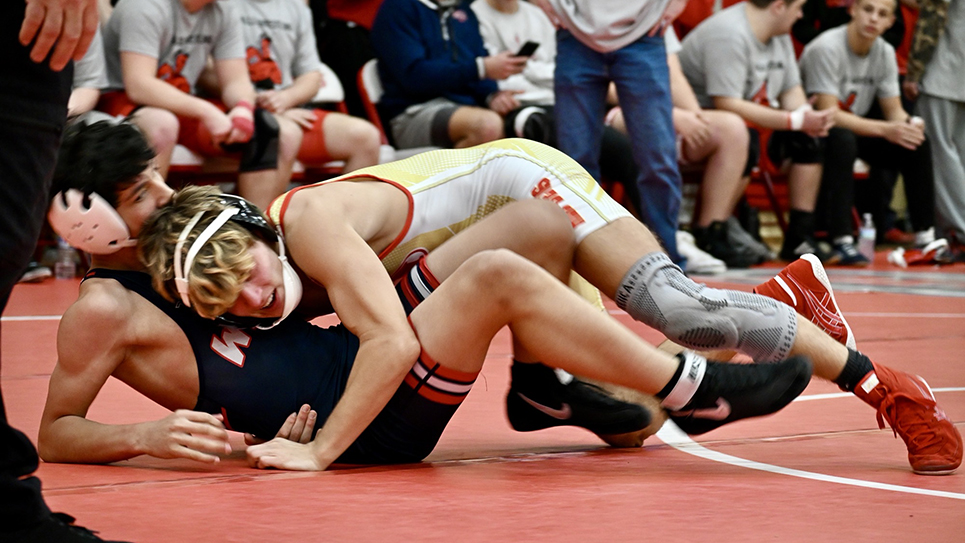The first real media marketing campaign began in December of 1954 when Walt Disney aired Davy Crockett, Indian Fighter. It was the first of three episodes planned by Disney based on the life of the Tennessee frontiersman. The Disney movie starring Fess Parker inspired a genuine craze with youngsters demanding “coonskin” caps, toys, and the like. The likeness of Fess Parker as Davy Crockett went on more products than one can imagine and products were produced ranging from crayons to underwear. Walt Disney had also just invented the television ”mini-series.”
Ratings went through the roof as youngsters and their families gathered around their television sets to watch Davy Crockett Goes To Congress and Davy Crockett At the Alamo. There are many of us who can still recall the words to the Ballad of Davy Crockett… ”kilt him a bar when he was only three…”
The real Davy Crockett was, as one might expect, quite different, although Walt Disney may very well have captured the essence of the man. One of nine children, David Crockett was born August 17, 1786. It would be a decade before Tennessee would even become a state and admitted into the Union. David’s father, John, moved his family to Jefferson County where he owned and operated a tavern. After a schoolyard fight with an older boy, David anticipated a beating and thought better of returning to school. David left with his siblings each morning, but before getting to the schoolhouse, he meandered into the woods to occupy himself until the school day was over. Eventually, the schoolmaster penned a note to John Crockett inquiring why young David had not been in school for the past two weeks.
David Crockett recalled when questioned about why he had not been at school, his father had been drinking. The son explained he had been afraid to go back to school, as he was sure he would get a whipping from the schoolmaster. He discovered he could expect little better at home and when David’s father armed himself with a stout hickory switch, Davy went flying. David ran so fast and far, it would be years before he came home. David came along a fellow named Jesse Cheek, who was driving a herd of cattle to Virginia. Young Davy hired himself out to Cheek and went along on the cattle drive.
Davy had run away when only twelve years old and despite being quite homesick, he did not return to his family until he was fifteen. He was a bit surprised that his entire family, including his father, greeted him with open arms and great happiness. David worked for an entire year, without being paid a cent, to work off two separate debts owed by his father totaling $76. While working for one of the men holding a note on John Crockett, Davy fell in love with the farmer’s niece. When he finally confessed his love for her, the girl told him she was engaged to be married. David Crockett felt sure he had not been an appealing prospect for the lass due to his being uneducated. Davy went back to school, working out an arrangement where he would attend class for four days a week and work for two days to earn his keep.
Davy fell in love yet again and despite being certain enough to acquire a marriage license, was horrified to discover his intended was also engaged to another man. David Crockett remained heartsick until meeting Polly Finley whom he pursued ardently. Polly’s mother was adamant her daughter would not marry Davy Crockett, but she did not have the final say in the matter and the two were married just shortly before Davy’s twentieth birthday. Polly bore Davy two sons, John and William, and the two had been married for around five years when they decided to leave East Tennessee to settle in Franklin County.
Franklin County borders Alabama and when the Creek Indians attacked Fort Mims in the Yellowhammer State, white settlers were outraged. The Creek Indian Nation had splintered and one group known as the “Red Sticks” attacked Fort Mims and stormed the walls. Once inside they massacred some 500 men, women, and children. Perhaps as many as 250 scalps were taken.
The Creek War started with battles raging between the feuding factions inside the tribe. Whites became alarmed by the violence and full scale war broke out when white troops attacked a party of Red Sticks as they were having a mid-day meal. The Red Sticks attacked Fort Mims as the inhabitants were having their own lunch. The Red Sticks spared the lives of most slaves inside the fort, took some white prisoners and killed virtually everyone else who did not manage to escape and very few got away.
Like most of his friends and neighbors, Davy Crockett joined the militia and set out to avenge the massacre. The Creek town of Tallusahatchee was attacked, sacked and almost 200 men, women and children were massacred. Crockett had his own reasons not to be especially fond of Indians, as his grandparents had been killed by Cherokee raiders inside their own home. One of his uncles, who could neither hear nor speak, was taken by the Cherokees and remained in captivity for almost eighteen years.
After returning from another brief enlistment, David Crockett welcomed the birth of a daughter to his family, but Polly was seriously ill, having contracted malaria. Polly Crockett did not live long after the birth of her daughter Margaret. Davy married a widow, who had two children of her own, and enough of an inheritance of property and cash to make Crockett a man of some means.
While away from home and exploring territory in Alabama, David Crockett had a serious bout of malaria and was discovered by Creek Indians, whom he credited with saving his life. Elizabeth Crockett was stunned when he returned, thinking her husband had died.
The Crocketts moved to West Tennessee, building a home near present day Lawrenceburg. In addition to the Crockett farm, Davy operated a gristmill, a distillery, owned an iron ore mine and a gunpowder factory. David Crockett held a couple of minor offices and was admittedly popular in his own community and friends urged him to run for the Tennessee House of Representatives. Crockett was elected, although he was quite different from the average politician of the day. Davy helped to create his own legend as he said little about issues and quite a lot about his own life. David Crockett proved to be a masterful storyteller and was adept at ridiculing his opponents. He was easily elected.
While serving in the state legislature, David Crockett crossed Tennessee’s most personally popular politician, General Andrew Jackson. Senators of the United States were elected by state legislatures at the time and General Jackson was a candidate; David Crockett voted for Jackson’s opponent. It would not be the last time Crockett and Jackson sparred politically and his opposition to the general would bring about the end of his political career.
Much of his holdings were destroyed in a flood and David Crockett moved his family yet again, this time settling in northwest Tennessee. Eventually Crockett was urged to run for the legislature to represent Carroll, Henderson, Perry, and Humphreys counties. Davy said he wasn’t interested, but his friends put him on the ballot anyway and he began to campaign in earnest. Crockett was reelected to the legislature, but from an entirely different district in a different part of the State of Tennessee.
In 1825, David Crockett determined to run for Congress from the Ninth District, which stretched from the Mississippi River to Lawrence County. Admittedly popular, Crockett lost his first congressional race. While waiting for the next election, Davy went into the lumber business and quite nearly drowned when he became trapped in a sinking boat. Worse still, he had been asleep when the boat began to go down and in trying to extricate himself from the boat, he had lost his nightshirt. His boat at the bottom of the Mississippi, his goods serenely coasting along with the powerful current, David Crockett stood on a sandbar entirely naked.
An embarrassed Crockett was rescued and taken to Memphis where he met Marcus Brutus Winchester, a wealthy merchant and the first mayor of Memphis. Winchester bought Davy some much needed clothes, fed and sheltered him and urged him to consider another run for Congress. Winchester had observed Davy Crockett entertaining Memphians with the tale of his rescue, making fun of himself and his dilemma. The wily Winchester saw how the audiences had responded and offered to help finance Crockett’s campaign. During his campaign in 1827, Crockett ran as a supporter and ally of Andrew Jackson, who was a year away from claiming the White House. Congressman David Crockett’s pet measure while in Congress was known as the land rights bill. Land grants had long been used by the government of the United States to pay not only soldiers, but also those who had provided the financing of the military. Many veterans discovered the land promised them was already occupied. Oftentimes, years had passed before the veteran or legal owner came to claim his land and Congressman Crockett sided with the settlers and hoped to protect their rights to the land they had worked. Davy Crockett had promised his constituents he would pass his land rights bill, but he had opposed President Andrew Jackson’s removal of Indians from their own lands. Jackson proposed to remove the Cherokee, Chickasaw, and Choctaw tribes from the land they had lived on for decades to territory west of the Mississippi River.
Jackson’s friends in Congress thwarted every attempted by David Crockett to pass his land rights bill. One did not oppose General Andrew Jackson lightly. Stern, righteous, and largely coldly unforgiving, Jackson was an accomplished feudist; in fact, he still carried a bullet near his heart from a duel. His opponent was dead.
Jackson’s friends in Crockett’s district supported his opponent, William Fitzgerald. While speaking from the same platform in Paris, Tennessee, Fitzgerald brutally assaulted Congressman Crockett verbally, asserting the incumbent was ineffective and had spent much of his time in Washington drunk. Davy Crockett sprang up and moved toward Fitzgerald, who whipped out a pistol. Crockett grudgingly went back to his seat on the platform. Jackson’s opposition was too much for Crockett to overcome and he lost the election.
Davy ran again in 1833 and won. The next year, he published his autobiography, which became something of a national sensation. Crockett spent weeks touring the country to promote his book and he began thinking that like his enemy, Andrew Jackson, he, too, might be presidential material.
When he sought reelection in 1835, Crockett faced another Jackson-backed opponent, Adam Huntsman. A veteran of the War of 1812, Huntsman had lost a leg and got around on a peg leg. Davy Crockett nicknamed his opponent “Timber Toe.” Davy and Huntsman were at least cordial enough to campaign together. Crockett lost the election, which came as a surprise to him and led to a legendary quote attributed to him while visiting a tavern.
Davy told the patrons they had “elected a man with a Timber Toe, so you can go to hell, and I will go to Texas.”
Elizabeth Crockett was very much against her husband going to Texas, but Davy believed he could acquire even more land in what would become the Lone Star State than he owned in Tennessee. Another former Tennessean was prominent in Texas, Sam Houston. It seemed a land of promise.
Always tempted by adventure, Davy Crockett left for Texas.







